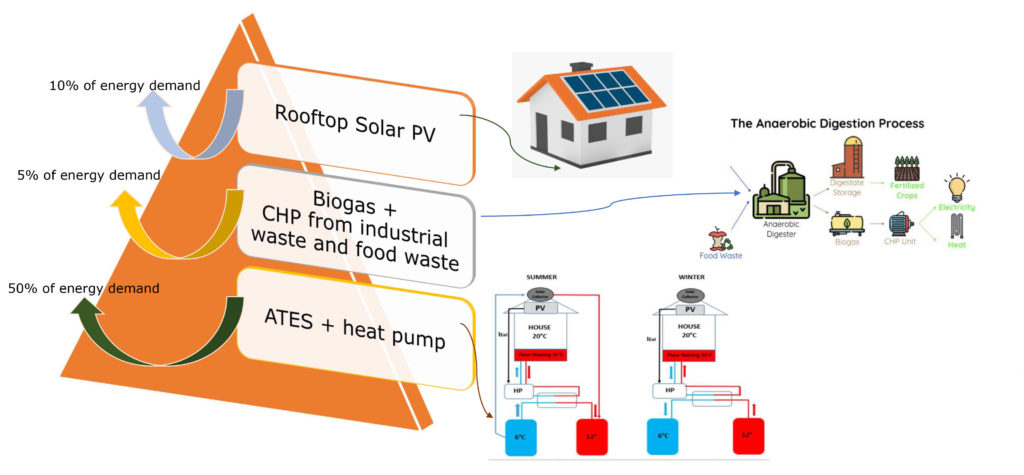Edition 2020 of the CircuCity summer school took place in September 2020. The set-up was entirely online, due to the Covid pandemic. Ghent University (Belgium) acted as the coordinator, supported by:
- MEERI (Poland)
- Mondragon University (Spain, Basque Country)
- ERION (Italy)
Programme
The programme existed of 3 main components:
• A series of interactive lectures and workshops given by experts in the field related to a variety of aspects of the circular economy.
• A multi-day tournament in which small groups per 5 students were challenged to re-design a city district in Belgium (Ghent), meanwhile dealing with 3 challenges: Water, Energy, and Raw Materials. Each group presented its ideas and innovative solutions to deal with the challenges throughout the week. At the end of the summer school, the final city design was presented and evaluated by the Tournament Board. Local and international experts will guide and evaluate the tournament.
• Some crucial elements are taken up separately in thematic modules: industrial symbiosis, sharing economy, urban agriculture, sustainable buildings. Throughout the summer school, the thematic groups studied cases and presented their findings to all other participants. This form of micro-teaching ensured an in-depth approach and allowed students to work on a theme that best fitted their profile.
The edition of the Circu City Summer school 2020 in numbers:
- 55 students made the finish
- originating from 33 countries
- calling in from 3 different time zones
- 11 groups of 5 students each competed for the best city redesign
- 2 winning tournament groups
Impact
The Circu City summer school edition 2020 gained a lot of visibility. Some examples:
- EIT-RawMaterials blog article
- LinkedIn post of happy student
- LinkedIn post with summer school update
- SINReM blog articles
- …
Tournament on city re-design
The two winning groups ‘Ecoville’ and ‘Circularth’ came up with integrated solutions for the challenges on water / energy / raw materials and the socio-cultural aspects of the city district. Here are some of their ideas.
Circularth
Group ‘Circularth‘ showed some nice out-of-the-box thinking by adding a piece to the peninsula! The triangle point topping the island can host a community center where functionalities are centralised that did not fit anymore in an ever-expanding residential/industrial area. The team members dream of a multi-purpose eco building for shops, community building, scientific research, insect farming, workspace,… Great group work!
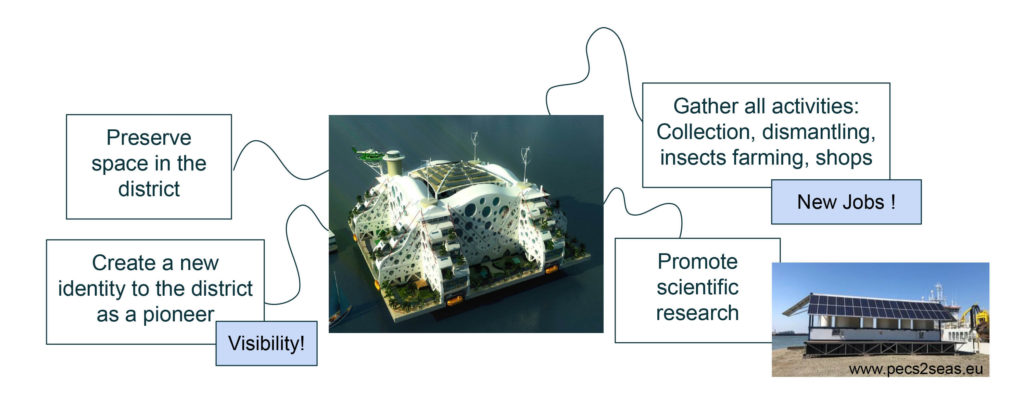
“Building a community
of lifelong learners!”
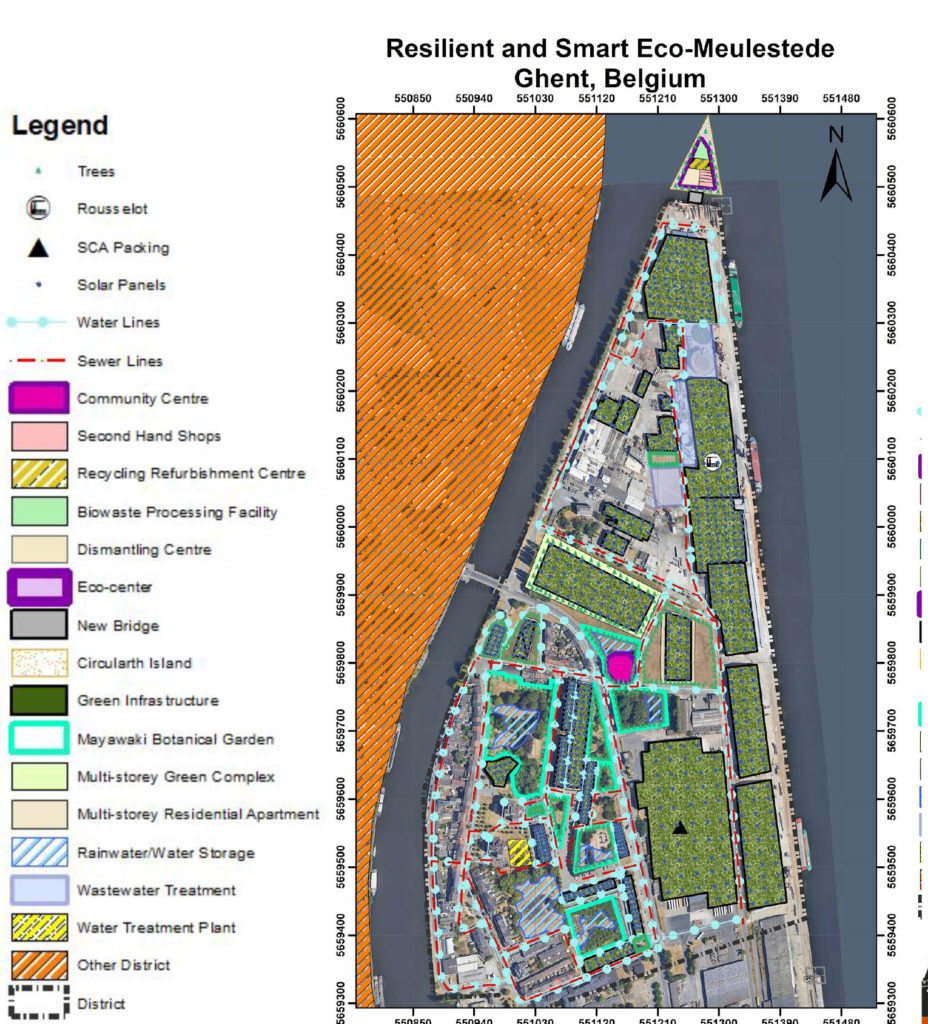
The fictional project even allowed for a timeline and an integrated map of the region and the island which included:
- Water collection, storage
- and treatment
- Sustainable buildings
- Solar installations
- Waste collection system
- Circularth Island
- Dismantling center
- Auto-BSF facility
- Community center

Ecoville
Group ‘Ecoville‘ wants to move away from intensive technology solutions but wants to start off with a mindset change. The group thereto foresees an integrated community center with a food bank, education, repair cafe, urban farming, etc. Their proposed solutions for water and energy are ‘easy on the pocket’. The jury also appreciated their presentation skills and motivational message to come and live in their Ecoville. Well done!
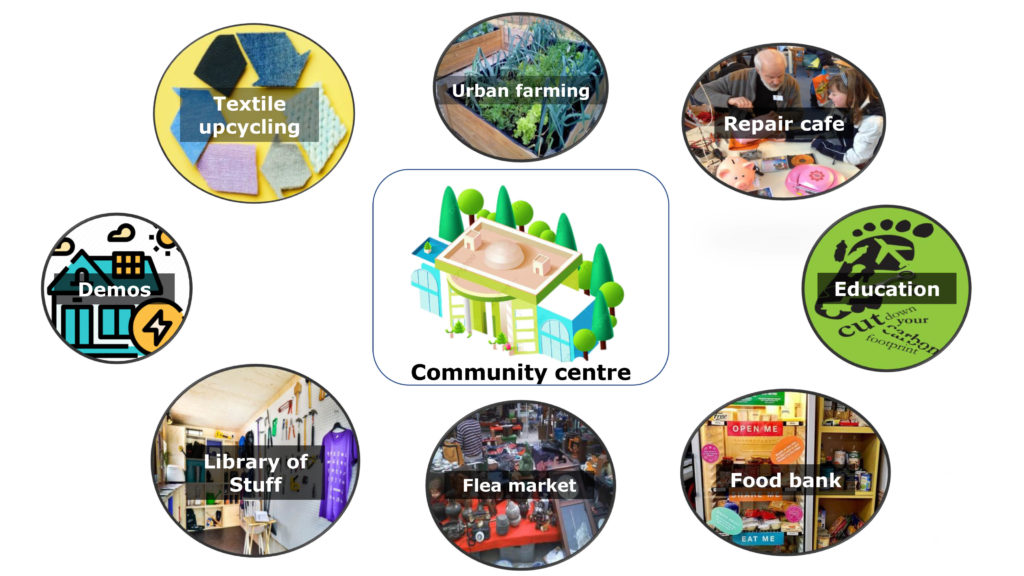
Why choose Ecoville?
• Right approach to sustainability
• Holistic solutions
• Not just technological quick-fixes
• Wide range of expertise
• We care. We protect. We do.
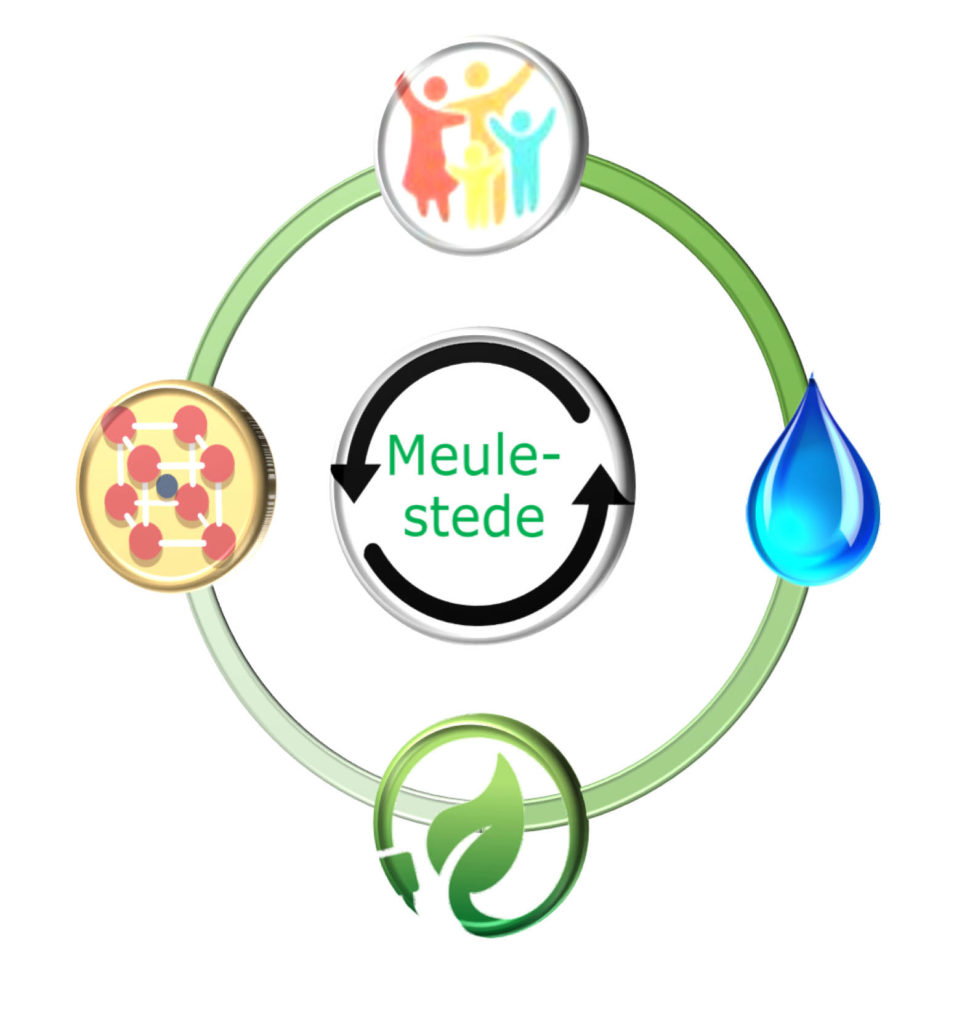
What’s in it for you, you ask?
• Live in a Carbon neutral district of the future
• Resilient
• Vibrant community
• New green business opportunities
